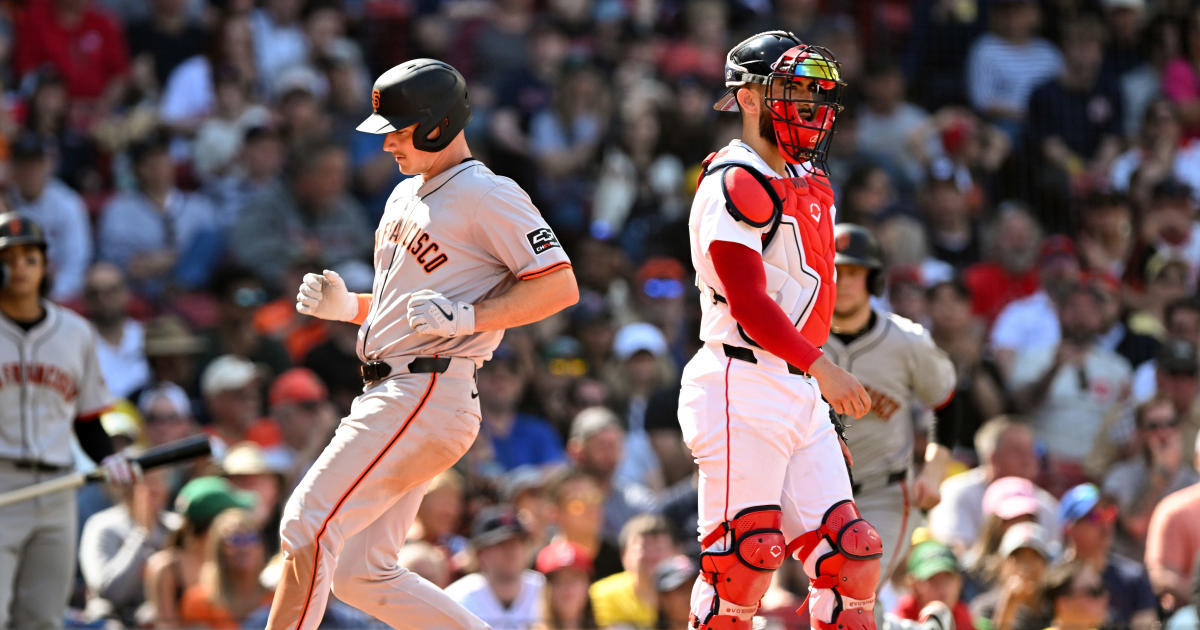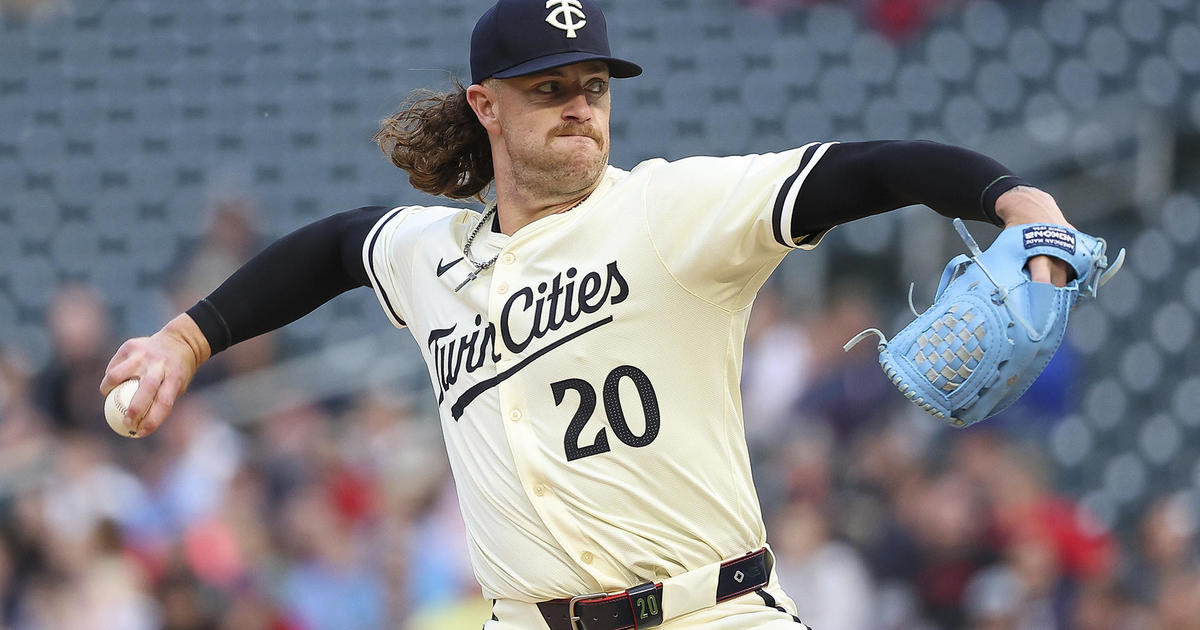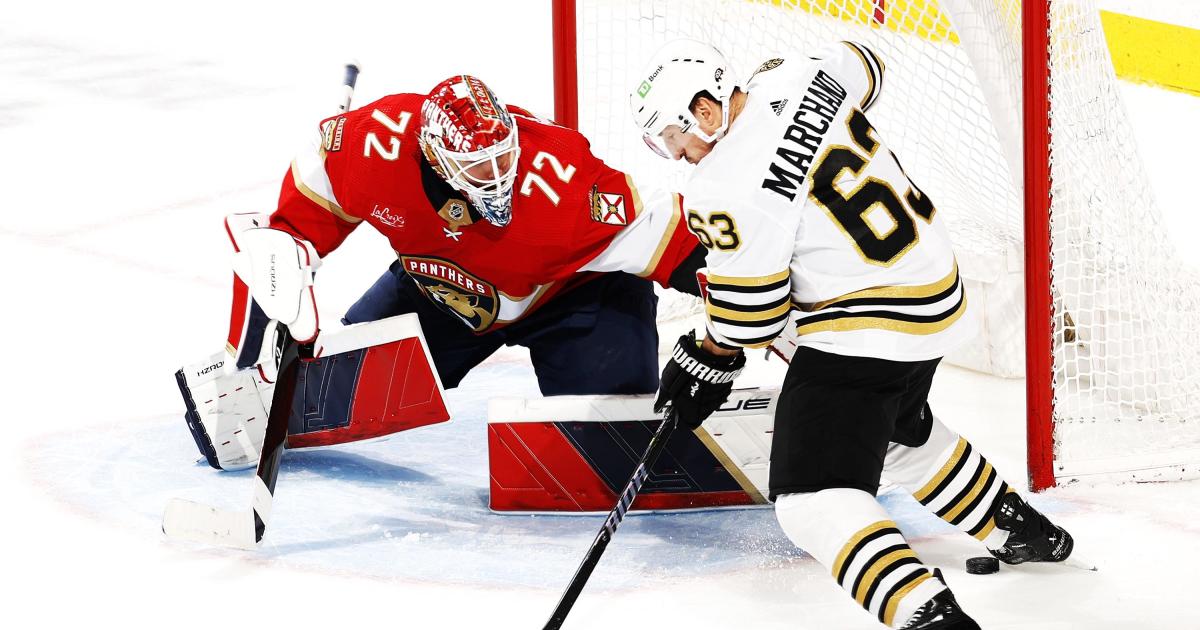Red Sox Ownership Misses Mark In Using Nomar Trade To Frame Mookie Betts Trade In Better Light
By Michael Hurley, CBS Boston
BOSTON (CBS) -- Red Sox fans, at this current moment in time, do not appear to be very happy. Red Sox owner John Henry understands that. As such, when he sat behind a microphone on Monday morning in Fort Myers for ownership's annual press conference, Henry decided to speak directly to the fans.
Henry attempted to make a connection with the fans -- "We were baseball fans, like you" -- in order to note that he feels the pain that they are currently feeling in the wake of the trade that sent Mookie Betts to the Dodgers. Whether or not he succeeded in that endeavor will be up to fans.
But what was clear is that the trio of Henry, Tom Werner and Sam Kennedy had some distinct talking points that they wanted to stress during their half-hour session with the media. And one of those points was completely off the mark.
"Some of you no doubt felt the same way in 2004 when we traded Nomar ... "
In Henry's opening message to fans, he suggested that those who are feeling upset at the most recent trade of a home-grown superstar were likely feeling the same way on July 31, 2004, when the team traded away Nomar Garciaparra. The subtext of this reference is to sarcastically ask, "And how did that turn out?"
Here are Henry's words:
When I say I understand how many of you feel about this trade with the Dodgers, I know many of you -- particularly our youngest fans -- are disbelieving or angry or sad about it. I know it's difficult and disappointing.
Some of you no doubt felt the same way in 2004 when we traded Nomar, who like Mookie was a hugely popular, home-grown player. All of us in the organization hoped we could avoid ever having to go through something like that again. But most clubs face similar dillemas from time to time.
Later, Werner brought up Nomar again.
"We've been in this position before. John alluded to the Nomar trade. We have made unpopular trades. They haven't all turned out right. Hopefully we'll look at this trade and see the benefits of it as time goes on," Werner said. "We also understand that in the short run this is going to be painful -- it's painful for us -- but it does give us flexibility."
And once again, Henry reiterated the Nomar comparison later on.
"As I said, we faced this in 2004, I believe. Very similar situation," Henry said. "We're charged with making tough decisions, and having to do what we think is in the best interest for the club in the long term, not just this season."
The comparison of the Nomar trade to the Mookie trade is, on its face, absurd. Nevertheless, for the sake of the exercise, we can briefly explore.
In July of 2004, Garciaparra had begun a steep descent from his All-Star/MVP-type numbers from earlier in his career. He was still hitting at a high average (.321) but with almost no power to speak of. He had just 15 extra-base hits (seven doubles, three triples, five home runs) and 21 RBIs in 156 at-bats. He was in the midst of his worst defensive season yet, and by many accounts, he did not have the best attitude. Dan Shaughnessy said the day after the trade that Nomar "was more miserable than any athlete I have ever seen."
So, identifying the need for a new starting shortstop and some solid defense at first base, Theo Epstein swung the deal that got Orlando Cabrera and Doug Mientkiewicz on the Red Sox.
Cabrera ended up replacing Garciaparra's offense, batting second in the World Series. With a .997 fielding percentage, Mientkiewicz delivered what was expected. The Red Sox immediately won a World Series. The trade was a win.
While baseball cannot ever be predicted, it feels safe to assume that Alex Verdugo, Jeter Downs and Connor Wong will not become instrumental pieces to a Red Sox World Series victory in 2020, just one year after a Red Sox team with Mookie Betts and with David Price finished 19 games out of first place in the AL East.
No Answer For Poor Decisions That Led To Bloated Payroll
Despite saying in September that the Red Sox needed to get under the Competitive Balance Tax threshold, Henry has been fighting against that very notion for the past month. It's been odd.
Nevertheless, a strong question on Monday came from Sean McAdam, who asked the group why ownership signed off on a number of big-dollar deals dating back to last season, considering Henry had said that the team had known for more than a year that it would need to get under the CBT following 2019.
Henry didn't answer the question. Instead, he looked to his right, instructing Werner to answer.
"Well you know, are you saying, well first of all we made those decisions on those pitchers before these conversations," Werner began.
McAdam interrupted, reiterating that Henry said in September that the Red Sox had known for more than a year what was coming with the CBT. The insinuation with such a question would be that perhaps dedicating $214 million to Chris Sale and Nathan Eovaldi last winter -- two pitchers carrying some very real physical question marks -- showed some imprudent spending for a team that knew the CBT issue was on the horizon.
Now pressed for an answer, Werner's response ... distinctly lacked that answer.
"But we've also said that that was a goal, not a mandate. We have been under the CBT some of our years, we have been over the years some of our years," Werner said. "And the more important issue for us is what is it that we can do to make the Red Sox strong in 2020, 2021, 2022? These decisions, there are lots of hypotheticals here. We are pleased with the value that we got back from the Dodgers. We might not be having this discussion, we might have proceeded under different sort of scenarios. But we are where we are based on the proposal that we agreed to."
That answer ignores the implications of going over the CBT for a third straight year, which carries a significant tax. That's something the Red Sox knew when they dedicated all those dollars to Sale and Eovaldi, and/or when they didn't try to unload David Price without unloading Betts.
Henry also bypassed all other financial decisions made by the team in this exchange with a reporter.
Q: Do you think there's anything the Red Sox could have done before the 2019 season that could have prevented having to trade Mookie this offseason?
Henry: Absolutely.
Q: Do you have some examples?
Henry: We could have signed him to a long-term contract. But short of that, I'm not sure what the answer is.
The Red Sox Have Won Four World Series Since This Group Took Over, You Know
Sam Kennedy often gets lumped in with "ownership," even though he doesn't own the team. That's mostly because in recent years, he's taken an active role in being the spokesman for ownership. In his role as president and CEO, he's largely become the face of the decisions made at the highest level within the Red Sox organization.
Yet, again, he still works for the owners. And so Kennedy seemingly made it a point to praise the work of the owners since they took over the team in 2002.
"We made the tough decision to do it because of the value that we're getting back in return, and because of how we think this sets us up to win our fifth World Series championship. And I can tell you, as a kid who grew up one mile from Fenway Park, the concept of being in a position to hopefully some day soon win our fifth World Series championship, I'm not sure that's a concept I could have wrapped my head around," Kennedy said. "So, as a Red Sox fan, we want a winning, competitive club that is built to win multiple World Series championships as we go forward. And under the Henry-Werner administration, over the last 19 years, we have won four times, and we're hungry for more. And I think kids and families appreciate that. They understand that this is an ownership group that has completely and totally changed the culture of the Boston Red Sox and built it into one of the preeminent franchises in all of Major League Baseball, because of the commitment to winning."
Make Sure You Buy Your Tickets
Considering the team traded away a rare superstar while also dumping half of the weighty salary of Price, the group was asked if any consideration was given to not increasing ticket prices this year, or if any consideration was given to "give anything back to the fans."
One might have believed that because this press conference was really an effort to try to make fans feel better about the Betts trade, it wouldn't turn into a bona fide sales pitch for tickets. One, however, would be wrong.
Instead of offering any givebacks to fans, Kennedy went on a ticket-selling spiel.
"We've taken a very consistent approach to, over the last four five years, of a very modest ticket price increase. I'm actually glad you brought it up because I mentioned publicly that we are pacing behind on ticket sales. There's been a big focus on affordability. There's actually a misconception still in the market that tickets aren't available, that every single game at Fenway Park is sold out. That's not the case -- there are tickets available," Kennedy said. "For our games in April and May, for Tier 5 games in terms of our pricing schedule, 60 percent of those tickets are priced at under 40 dollars. We have tickets for students, college kids, high school kids, middle school kids, for every single game at 9 dollars. So come to Fenway Park for 9 dollars. You may get standing room tickets, you may get field box seats, loge box seats. We have affordable family options – 99 dollars for a family of four, which includes four tickets, includes food and beverage."
Kennedy wrapped up his 80-second sales pitch thusly: "We understand the commitment that our fan makes, and every single dollar that fans invest into tickets, food, beverage at Fenway Park goes back into our baseball operation. That's important that our fans understand that connection. I know they do. But there are affordable tickets for Red Sox games this season, and we want to make sure that we get that message out there."
Just minutes later, Kennedy was asked about the pace of ticket sales this offseason. Kennedy said the team is pacing about 15 percent behind overall. He also said that instead of a normal renewal rate in the high 80s for season-ticket holders, that rate is in the low 80s this winter.
And then .... it was time to sell more tickets.
"It's incumbent upon us to make sure that fans, when they come to Fenway, have a great experience, to want to come back," Kennedy said. "Our ticketing group that has been together for 19 years knows exactly what the mission is, and that's to pack Fenway night in and night out, because it really is a competitive advantage. So to the extent that people haven't been to games at Fenway, please come on out and support this team. There's definitely a mind-set -- you could feel it this morning [in the team meeting] -- of having an edge, or a little bit of a chip on their shoulder. I think we have some things to prove this year, and I think that will be fun for fans to watch."
Again, a 30-minute press conference aimed toward soothing fans' anger about the Mookie Betts trade didn't seem like the best place to make multiple pitches to sell tickets to Red Sox games. Nevertheless.
Odds & Ends
It's impossible to speak on behalf of large groups of people. But if the goal was to make angry fans feel better about the Betts trade, it feels safe to believe that this effort likely came up short. Only when the Red Sox show they are capable of competing at a championship level again will the fans come roaring back to support the team that just traded away Mookie Betts.
You can email Michael Hurley or find him on Twitter @michaelFhurley.



